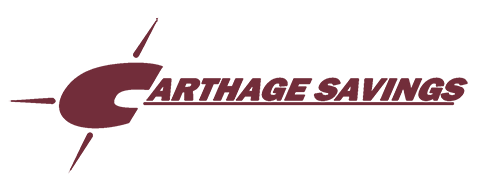Buying vs. Leasing a Car ? Carthage Savings & Loan
01/01/2020
Should I Buy or Lease My Next Car?
Deciding whether to buy or lease the next car you drive is a major financial decision. Each avenue provides its advantages and drawbacks, so you must weigh them carefully and apply them to your unique situation. To better help you decide, Carthage Savings & Loan has outlined some of the pros and cons of buying and leasing a car. Here’s a look at the factors to consider so you can make the right choice for your financial future.
Length of Ownership
A great place to start is determining a timeline for how long you plan to use your new car. Leases offer short-term use of the vehicle with terms of typically two or three years. This can give you some flexibility if you think your needs for a car will change in the near future. However, lease agreements often come with early cancellation charges that apply if you have to terminate the contract sooner than the agreed date.
On the other hand, buying a car means you will own it for as long as you want. Yet owning a car also means you’ll eventually have to sell it yourself when you’re ready for your next one. This process is often more difficult than just trading in a lease, but at the same time, it also allows you to recoup some value on your investment.
Cost
Of course, cost plays a huge role in your decision. Typically, you will not be able to purchase a car entirely out of pocket. It’s more likely that you will have to take out an auto loan that requires monthly
payments. Leasing also requires you to make monthly payments, but they are usually lower because you are only paying for the value of the car’s depreciation.
But it’s important to remember that leases have higher upfront costs that come in the form of a security deposit, acquisition fee, first month’s payment, and more. In addition, purchasing a vehicle for ownership and signing a lease both require a down payment, taxes, and other fees before you can drive off the lot.
Mileage
In most lease agreements, there will be a cap on the number of miles you can drive per year. This limit usually ranges from 10,000 to 15,000 miles, and exceeding it will result in an additional charge. If you don’t drive too often, leasing may be the way to go, but many drivers will hit or exceed that benchmark over the course of a year.
When driving your own car, the main concern with your mileage is the resale value – especially if you want to get a new car in the future. High-mileage cars have a lower value, so make sure to keep that in mind if you do drive often. But with no mileage restrictions, you can travel anywhere you need to without a hassle in a car you’re not leasing.
Get Approved for a Loan
Before heading to the dealership, it’s important to keep these pros and cons top of mind when deciding whether to buy or lease your next vehicle. To further help you make your decision, the trusted team at Carthage Savings & Loan is standing by to help you secure an auto loan. We offer competitive rates on new or used vehicles, as well as up to 100% financing for qualified buyers. Stop by your nearest Carthage Savings & Loan branch today, and we’ll help you get behind the wheel in no time.


